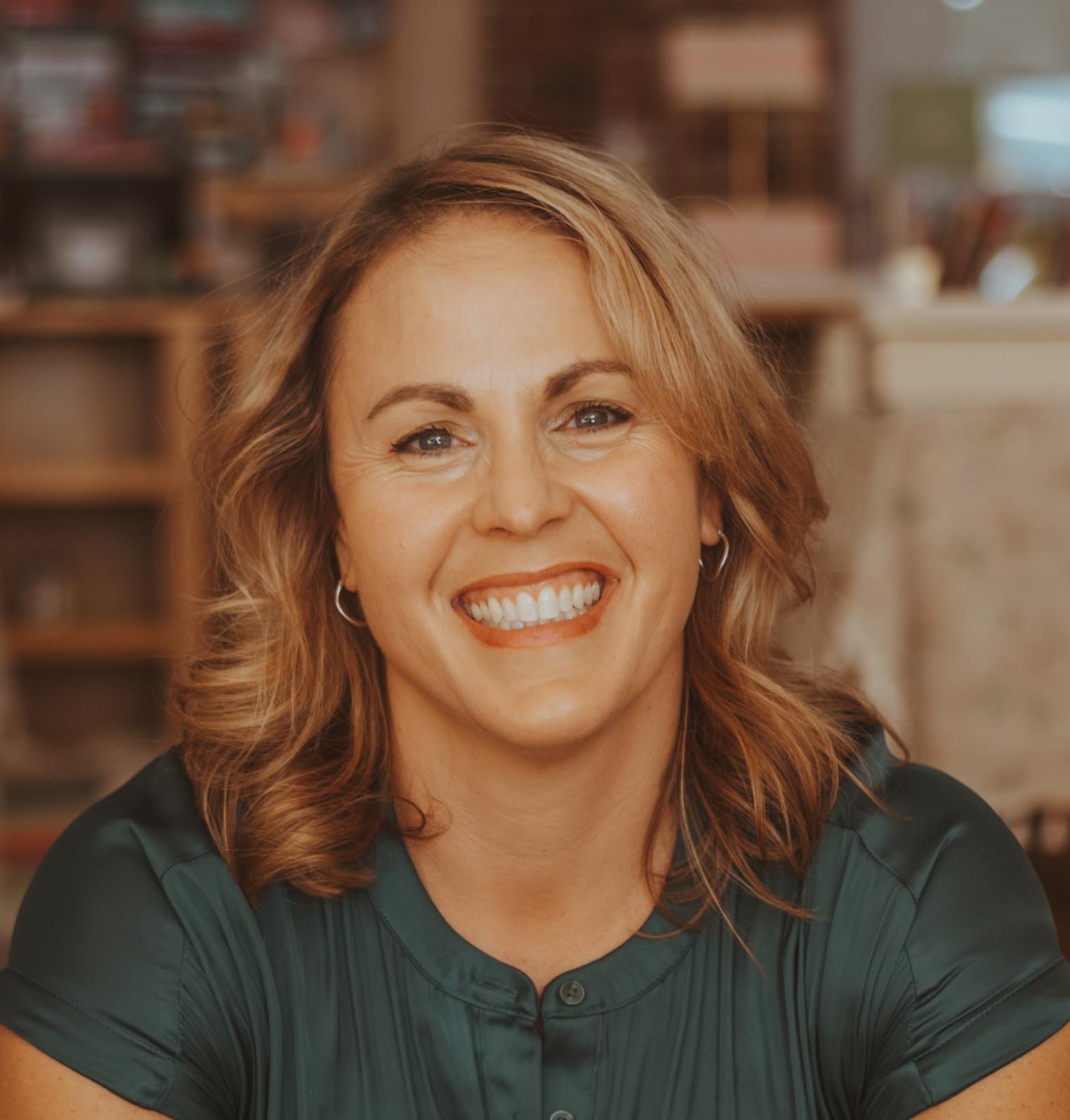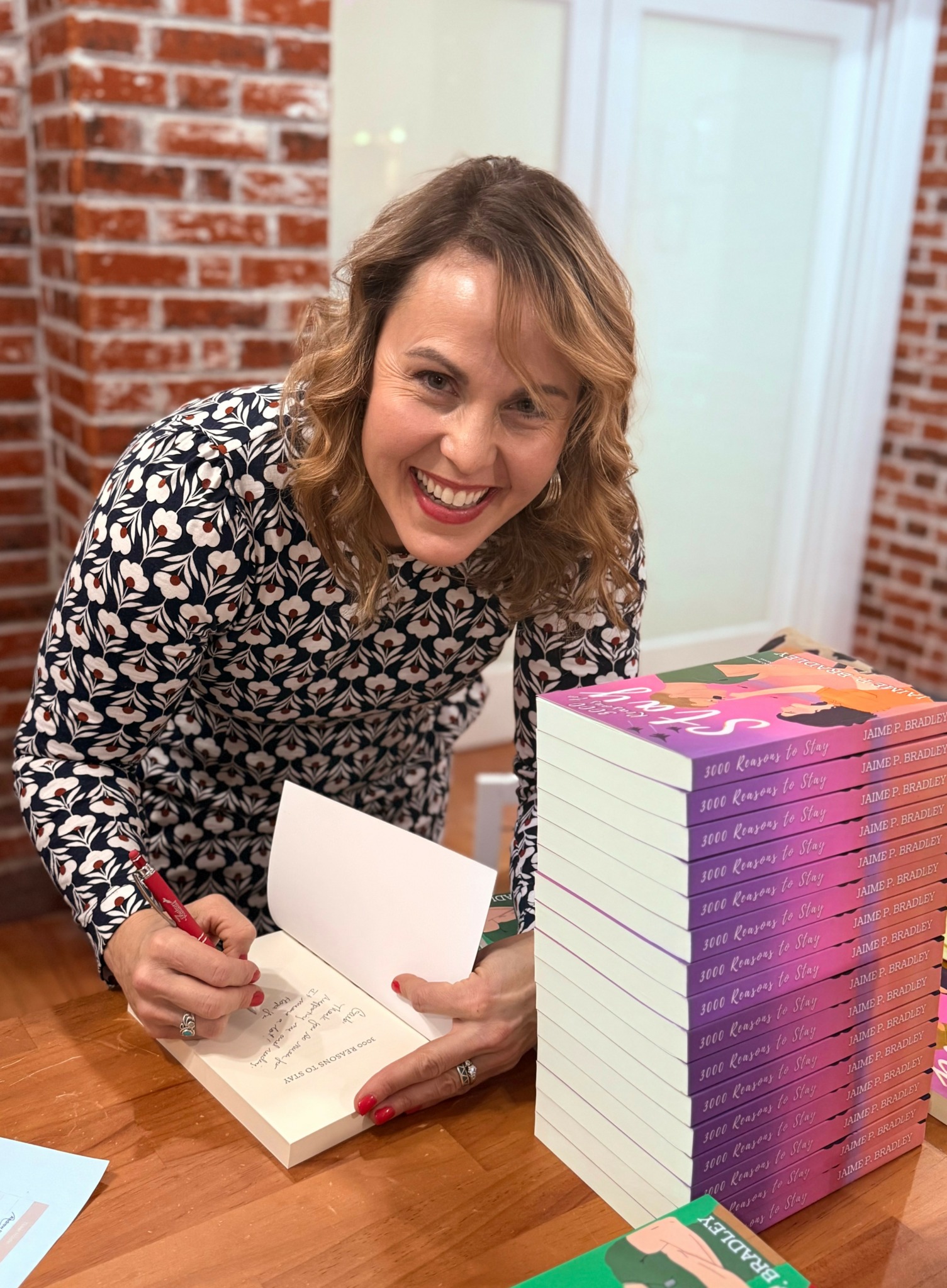We recently connected with Jaime P. Bradley and have shared our conversation below.
Alright, Jaime P. thanks for taking the time to share your stories and insights with us today. What do you think it takes to be successful?
Persistence. The discipline to keep showing up, even when it’s hard. Even when you’re not seeing results. Even when you’re not able to put in a full effort. Keep. Showing. Up.
I grew up on a comparatively small dairy farm in Vermont and my parents gave my brother and myself a fair amount of responsibility from a young age. On a given week, we both did everything from tractor work to milking cows, but we each had a daily chore that never changed. For me that was feeding calves. No one was going to do it for me, and those animals relied on me to get it done. Every day, from the time I was about seven years old. And while I certainly wasn’t always a good sport about having to do that work, I reflect on it now as an intensely formative and positive experience. I am a physically and mentally stronger, more persistent and grounded person as a result.
That daily responsibility deeply affected my approach to my life and my work, long after I left the farm to go to college, and graduate school, and beyond. Whether I’m approaching my writing, my fitness—I’m a strength training enthusiast—or coaching one of my kids at a game, sport or even doing homework, I try to nurture the concept of persistence as practice and vice versa.
When I decided to pursue writing fiction, specifically romance, after years in the non-fiction world, I knew there would be a steep learning curve. I’d been reading the genre since my days feeding calves, but that didn’t translate to knowing instinctively how to write it well. But I promised I’d take myself seriously and I sat down to write. I listened to writing craft podcasts and watched webinars, and read. And read some more. And wrote. Every day, I tried to move the needle until I’d gone from one page to three hundred. One finished novel to two, and now three.
Sometimes it’s difficult and often it feels like things move slower than they should, but I try to remind myself that I can’t build a career overnight. I can’t write a novel in one day. But I can write a page or twenty. I can build my author business one percent better than it was yesterday.
Because the only way to keep getting better is to keep showing up. And, truly, the only person who can do it for you, is you. And that’s a story I try to tell in all my romance novels, right along with a happily ever after.

Awesome – so before we get into the rest of our questions, can you briefly introduce yourself to our readers.
I am a contemporary romance novelist, author of the 3000 Reasons Series. My stories always include gritty, hardworking characters finding their heartwarming and steamy happily-ever-after.
I’ve been reading romance since I was about ten years old, probably younger than was strictly appropriate! But my family encouraged reading regardless of genre and my grandmother and dad were both big fans of Nora Roberts. It was normal for me to get caught reading a page or two of one of her novels between milking cows or feeding calves. Farm work can be fairly solitary, so I often kept myself entertained during various chores by coming up with stories of my own and replaying them in my mind like a movie—with me in a barn by myself playing all the roles.
A few times I put those stories on paper growing up, but I never considered becoming a writer at all until college. And even then, I had it in my head that I needed to have a more ‘serious’ version of that goal, so I pursued agricultural science writing, which is what I’ve done for the last fifteen years as a freelancer. At various points over the years, I’d start writing a novel, but it took me years to give myself permission to specifically write romance—the genre I kept going back to as a reader. When my youngest child went off to preschool and I finally had the mental bandwidth to focus on adult themed stories, I committed to it.
In addition to offering contemporary romance novels with the goal of providing satisfying entertainment, I’ve been able to adapt my previous work experience into helpful resources for other writers. One of the things I learned after more than a decade talking to scientists and ranchers, are the value of pattern recognition and translation, business strategy and habit building. Whether I’m reading a research study about cattle genetics, or brain science or a genre of romance outside my own, I’ve learned to recognize patterns and translate those patterns into useful tips for enhancing creativity, flow, and productivity. I’m now offering presentations to writers on these subjects, and I hope eventually to start offering coaching and mentoring.
If I can get any one point across it’s that I am exactly who I seem to be. I pride myself on being honest, realistic, and positive. My background on the dairy farm, my marriage to a Marine, my experience with life-threatening illness and disability, my numerous moves across the country—have all informed my vision of the world and my approach to story.
I refuse to apologize or kowtow for being a part of a genre that is often demeaned. I write sexy stories with realistic characters, hope, and happily ever after. That may seem boring and predictable on the surface, but for readers, it’s comforting. And it’s not exclusive to romance. Mystery series readers know the main character sleuth is never going to get killed. James Bond and Jack Reacher never die. That knowledge doesn’t change the enjoyment of the story—in fact, they increase satisfaction. Real life is uncertain and depressing enough, we need these outlets for hope and positivity. There’s room for stories of all kinds because there are readers of all kinds. I do my best to include a part of my personal experience in every one of my books in order to maintain that authenticity and build trust with each reader.

Learning and unlearning are both critical parts of growth – can you share a story of a time when you had to unlearn a lesson?
Coming from non-fiction science writing, I am very much in the habit of colleting massive amounts of data, doing interviews, and then sorting through all that to find the bits of information and quotes that will create the most informative and engaging story for readers.
That doesn’t work for fiction for several reasons. On the craft side, there is a delicate balance between facts and realistic details that add to setting and believability, and the kind of info-dump that will drag down the storyline. On the business side, too much information is simply overwhelming. You can’t know everything about craft, publishing, marketing, and sales, particularly at the beginning of your career. And at a certain point, all the information, all the advice is more paralyzing than it is helpful.
I spun my wheels for a lot of years, buying craft books and reading about successful writers, but not giving enough focus to the act of my own fiction writing. When I did start giving myself that time, I tried to drink from the romance writing industry firehose, attempting to do everything right with my first book, my first launch. And I found myself so drowned in new information, that I struggled to make a plan that I could realistically execute.
It’s very common to get caught in the “I’ll be ready to do XYZ when…” fallacy. I’ll be ready to publish when I know more about writing. When I know more about the industry or the market trends. The truth is, no matter how much you’ve learned or how well you’ve planned, something isn’t going to work out right. There will always be something that you learn and will have to apply to the next project, whether that’s taking more time with editing the novel or sending out more Advance Readers copies, or having a better handle on the marketing. At a certain point, you have to let the project go into the world and just understand that it isn’t perfect. There’s no “perfect” amount of knowledge or information that will guarantee success. There’s only making the next version better.
I still love to go down research rabbit holes, but I’ve found a more functional balance with my routine. I am a recovering perfectionist. My first job is always to write a solid story first. I can add information and details on the rewrite. Then I move on to the marketing or publishing tasks that will move me forward—a great cover, a great editor, a great website or newsletter. If I want to nerd out on one of those listening to podcasts and doing research, that’s fine. But I have to give myself a deadline, because no matter what, it’s not going to end up perfect. And I know that I’ll do it better next time anyway.

What’s the most rewarding aspect of being a creative in your experience?
I find the act of indulging my imagination extremely satisfying, particularly within the constraints that the contemporary romance genre provides. For other creative writers, it might be too narrow a field, but for me it is just big enough to look around and ask myself ‘What if…?’ without the responsibility of creating an entirely different world. But I love creating characters that are real, that would be fun to sit down and have a drink with, that readers root for and are sorry to say goodbye to when they turn the last page.
Accepting the joy that others find in my work is a process I’m still getting used to. It’s difficult to look at something you’ve created and not see the flaws, particularly after time and space have removed some of the emotional attachment. But hearing from readers that they were moved or inspired by the characters’ growth, that’s incredibly rewarding.
Contact Info:
- Website: https://www.jaimepbradley.com
- Instagram: https://www.instagram.com/jaimepbradley
- Facebook: https://www.facebook.com/profile.php?id=61566539554538
- Other: https://www.goodreads.com/author/show/52989677.Jaime_P_Bradley



Image Credits
Phoenix Aurora Photography


